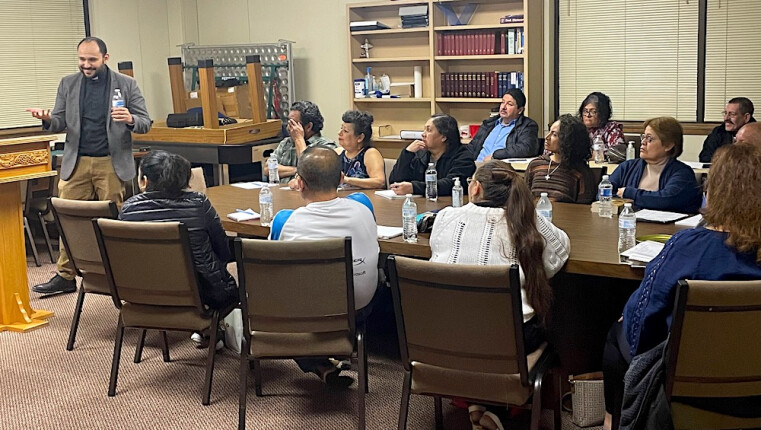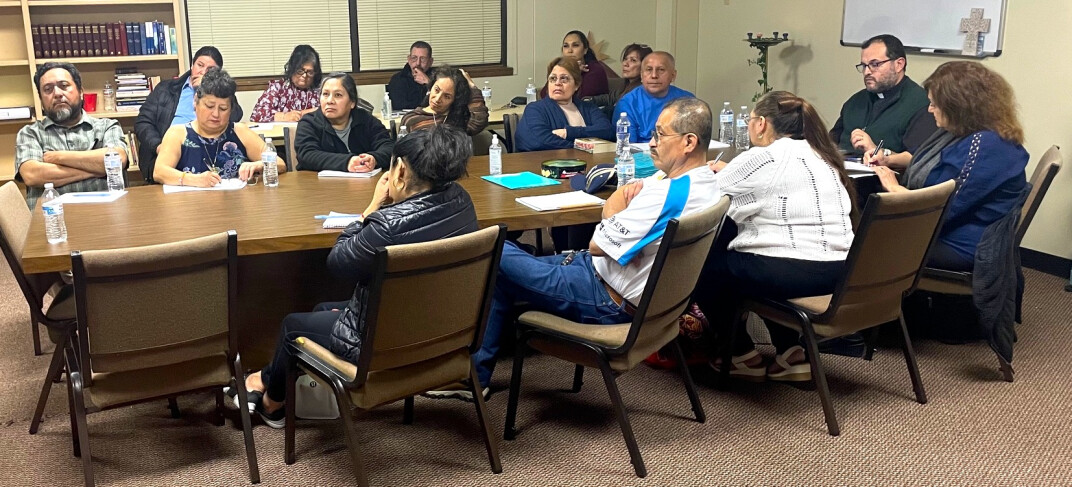Building Latino Leadership

Three diocesan priests have launched an effort to develop new Latino leaders in the diocese.
The three, the Rev. Fabin Villalobos of Christ Church in Oak Cliff, the Rev. Miguel Carmona of Saint Barnabas in Garland, and the Rev. Lino Lara of San Francisco de Asis in east Dallas, are charged with developing leaders with strong Biblical and theological roots, are a part of the Hispanic community, and have a commitment to raising Latino involvement and influence in the diocese. To accomplish the task they have created the Latino Leadership Courses through The Stanton Institute.
The mission to build up new leaders from the Hispanic community was first presented at the Diocese Leadership Day in January where Villalobos, Carmona, and Lara outlined the plan to start the series of courses. “Times have changed,” Lara commented. “We believe – we expect – that these courses will develop leaders from the Latino community for the times in which we live.”
The all-Spanish classes are packed into a quick six-week session to respect the busy lives of the participants and are rotated between the three churches, each of which is located in predominately Hispanic communities. It was important, the priests felt, that the classes be held in a cultural environment that is comfortable for the participants rather than the downtown cathedral, home of the Institute. “This is not a glorified Sunday School class,” Villalobos said. “It is a serious effort to encourage members in the Latino community to take on substantive roles in the diocese as well as their local parishes.”
In the beginning, each rector committed to getting at least five members from their parishes to participate. At the first class, February 1, there were 21, exceeding their goal. The first six-week course focuses on understanding the holy Scriptures. It delves into the Bible as a collection of books, created through the inspiration of the Holy Spirit, that has been subjected to interpretations and translations over time yet continues to reveal the will and presence of God in today’s world. Future courses will focus on Episcopal Church traditions, the church’s organizational structure, and the roles of leaders in local parishes, the diocese, and the national church.
As demographics change, the priests agree that Latino lay leaders are needed to assume an increasing role in their communities and the diocese. “Communicating through the language and the Hispanic culture is essential to attracting the growing Latino community to the church,” Fr. Carmona states. “We are working with the other predominately Latino churches in the diocese to grow this effort. and invite anyone to become a part of this leadership effort. It is important, it is essential!”


